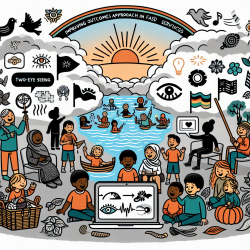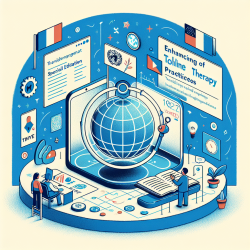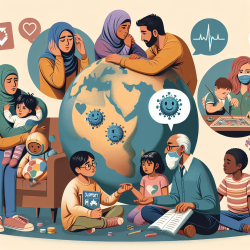Understanding the Two-Eyed Seeing (TES) Approach
TES is a concept developed by Elders Murdena and Albert Marshall, integrating traditional Indigenous knowledge with Western scientific methods. This dual perspective allows for a more holistic understanding and treatment of FASD.Key Outcomes of the Research
The Eastern Door (ED) Center's model has shown significant success in reducing FASD prevalence and improving outcomes for children through culturally rooted, community-based services. Key outcomes include:- Reduction in FASD prevalence by approximately 50% over 20 years.
- Early diagnosis and intervention, leading to better educational and social outcomes.
- Integration of traditional healing methods with modern diagnostic tools.
- Significant cost savings for the community and government.
Practical Steps for Practitioners
Practitioners can enhance their skills by implementing the following strategies based on the ED Center model:- Adopt a TES Approach: Incorporate both traditional and scientific perspectives in your practice.
- Community Collaboration: Engage with community members, including Elders, to develop culturally relevant interventions.
- Early Screening and Diagnosis: Utilize tools like the Medicine Wheel Teacher-Student Index Tool for early identification and intervention.
- Holistic Support: Provide comprehensive support that includes educational, social, and health services.
- Reduce Stigma: Educate communities about FASD as a system disorder rather than a result of individual behavior.
Encouraging Further Research
The ED Center model underscores the importance of integrating cultural and scientific knowledge in FASD service delivery. Practitioners are encouraged to conduct further research in the following areas:- Long-term outcomes of TES-based interventions.
- Impact of early diagnosis on educational and social development.
- Strategies for reducing stigma associated with FASD.
Conclusion
The Eastern Door Center's approach offers valuable insights for improving FASD outcomes through culturally informed, community-based services. Practitioners can enhance their skills and contribute to better outcomes for children by adopting these strategies and engaging in further research.To read the original research paper, please follow this link: The Eastern Door Center: re-balancing the wheel–a Two-Eyed Seeing approach to FASD and other disorders related to transgenerational adversity.










